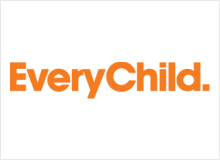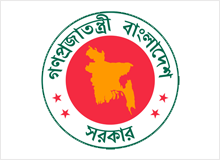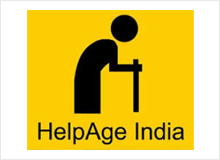
Projects
-

Development of a Portal and Training Partners in communications & fundraising
Category: Civil Society Support
Client: EveryChild UK
EveryChild UK is an international development charity working in eighteen countries to stop children growing up vulnerable and alone. EveryChild works in partnership with local organisations to ensure a secure future for children who are living without the care and safety of a family or are at the risk of losing such care and safety. EveryChild works at a grassroots level with community groups, or with non-governmental organisations, as well as alongside government agencies, to help change their service delivery for the better.
EveryChild India required a website to showcase their work and reflect their global presence while profiling the work of their partners, along with a sub-site on resources for children covered under their programmes. Mahiti developed illustrations for the children's section and comprehensive profiles for the partners.
Besides, EveryChild needed a newsletter targeting their network of CSOs and government agencies. After developing the newsletter design and framework, Mahiti trained EveryChild's India team in designing and publishing the newsletter independently using the Content Management System(CMS) to update and manage the website.
Under the second phase of this project, each of the India Partners was trained by Mahiti on the basics of fundraising, communications and donor relations management, as well as web and social media communications. Know More
Duration: 01 April 2009 to 31 March 2010

Improving National Disaster Response in Bangladesh
Category: Community Empowerment
Client: Government of Bangladesh
Bangladesh is a country that faces frequent natural disasters. Being one of the poorest in the SAARC (South Asian Association for Regional Cooperation) Region, the country can ill-afford to make huge budgetary provisions for post-disaster recovery and rehabilitation. To reduce losses to the national exchequer and to optimise effective and efficient use of available resources, it was essential for the country to develop strategic approaches to disaster response. Department of Disaster Management(DDM) was set up in 2012 under the Ministry of Disaster Management. DDM has the mandate to implement the objectives of Bangaldesh’s Disaster Management Act of 2012. DDM does this by reducing the overall vulnerability from different impacts of disaster by undertaking risk reduction activities, conducting humanitarian assistance programmes efficiently to enhance the capacity of the poor and disadvantaged as well as strengthening and coordinating programmes undertaken by various government and non-government organizations related to disaster risk reduction and emergency response.
Mahiti was contracted by the Disaster Management Bureau (now Department of Disaster Management under the Ministry of Disaster Management), Government of Bangladesh to architect, design and implement the National Disaster Management System(Cell Broadcasting System, IVRS & SMS) and to facilitate procurement of necessary technology hardware for the same. This entailed integration of national GIS (Georgraphical Information System), mobile phone networks, traditional telephony and fax of various stakeholders in disaster management like civilians, police, fire-brigade, para-military forces, non-profit groups and civil defense personnel. The system enabled synchronised responses and efficient use of human and financial resources. Know More
Duration: March 2012 to September 2013

An online application to engage people across India to join the Campaign on DRE
Category: Community Empowerment
Client: Greenpeace India
Through its Energy [R]evolution, Greenpeace intends to demonstrate how the world can get from where we are now, to where we need to be in terms of phasing out fossil fuels and cutting CO2, while ensuring energy security. In an effort to bring about this revolution, Greenpeace India is working to promote Decentralized Renewable Energy (DRE). There are many examples of DRE systems in India. In Bihar, over one hundred thousand people are using electricity made from waste rice husk. in Ladakh, tribal communities are processing their farm produce with machines powered by micro-hydro( a type of hydroelectric power that typically produces from 5 kW to 100 kW of electricity using the natural flow of water. Installations below 5 kW are called pico hydro). In Karnataka, villagers are cooking food on clean gas flames produced by cow manure.
To spread the idea of DRE across the country, Greenpeace wanted to undertake an online campaign. Mahiti developed an online application to engage people across India to join the Campaign for Decentralised Renewable Energy. Know More

Srengthening the representative voice of the elderly in India through the web
Category: Civil Society Support
Client: Helpage India
Established in 1978, HelpAge India is a leading charity platform in India working with and for disadvantaged elderly and has become the representative voice for India’s elderly. Dedicated to improving the status for India’s senior citizens, it works in 26 States providing medical services and poverty alleviation schemes in urban and rural India.
Helpage is one of the oldest fundraising organisations in India, one of the first few organisations that appealed to the public to support their work. However, they wished to enhance their public profile in order to gain more support to their expanding programmes. Mahiti consulted relevant teams of HelpAge India from all over the country to examine possibilities, challenges and opportunities and to develop goals and pathways for change and action for improved communications and resource flow. Mahiti’s report encapsulated Projections and Recommendations for the way forward to meet the challenges and opportunities for 2020. Know More
Duration: 19 June to 05 August 2013